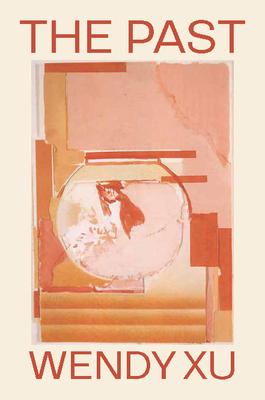Elegiac and searching, poems written in the long shadow of immigration
The poems in Wendy Xu's third collection, The Past, fantasize uneasily about becoming a palatable lyric record of their namesake, while ultimately working to disrupt this Westernized desire. Born in Shandong, China, in 1987, Wendy Xu immigrated to the United States in 1989, three days ahead of the events of Tian'anmen Square. The Past probes the multi-generational binds of family, displacement, and immigration as an ongoing psychic experience without end. Moving spontaneously between lyric, fragment, prose, and subversions in "traditional" Chinese forms, the book culminates in a centerpiece series of "Tian'anmen Square sonnets" (and their subsequent erasures), to conjure up the irrepressible past, and ultimately imagine a new kind of poem: at once code and confession.
"Tian'anmen Sonnet" (dead air in air ... )
Dead air in air
The anniversary of language
holds you back against
bucolic dreaming, down stream
from here is running
a miraculous color, elegy
bursts like a ribbon in air
Thinking again of the Square today
Bold sky, passing episodes of cloud
Vegetation mutters in the Far West
A column of ghosts
going violet over time
Familiar song looping overhead
Lines pressed in air

Elegiac and searching, poems written in the long shadow of immigration
The poems in Wendy Xu's third collection, The Past, fantasize uneasily about becoming a palatable lyric record of their namesake, while ultimately working to disrupt this Westernized desire. Born in Shandong, China, in 1987, Wendy Xu immigrated to the United States in 1989, three days ahead of the events of Tian'anmen Square. The Past probes the multi-generational binds of family, displacement, and immigration as an ongoing psychic experience without end. Moving spontaneously between lyric, fragment, prose, and subversions in "traditional" Chinese forms, the book culminates in a centerpiece series of "Tian'anmen Square sonnets" (and their subsequent erasures), to conjure up the irrepressible past, and ultimately imagine a new kind of poem: at once code and confession.
"Tian'anmen Sonnet" (dead air in air ... )
Dead air in air
The anniversary of language
holds you back against
bucolic dreaming, down stream
from here is running
a miraculous color, elegy
bursts like a ribbon in air
Thinking again of the Square today
Bold sky, passing episodes of cloud
Vegetation mutters in the Far West
A column of ghosts
going violet over time
Familiar song looping overhead
Lines pressed in air